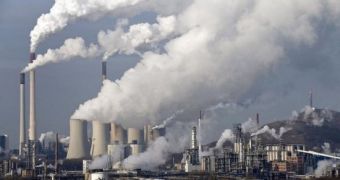This past Monday, high officials in Colorado made history when they announced that, under new rules and regulations, companies carrying out oil and gas operations in the state would be left with no choice except green up their working agenda or risk being made to pull the plug on their business altogether.
Information shared with the public says that, under the news rules, oil and gas companies must see to it that as much as 95% of the pollutants and volatile organic compounds that the facilities they own and operate in the state produce on a daily basis are captured and stored.
Companies must also carry out monthly inspections and make sure that tanks, pipelines, wells and other facilities do not leak. To ensure that these inspections are done properly and not just for the fun of it, oil and gas companies will have to use infrared cameras.
Commenting on these measures, Governor John Hickenlooper said that, “These are going to amount to the very best air quality regulations in the country.”
Think Progress tells us that Colorado did not settle for trying to control pollutants emissions without discriminating between one toxic compound and another.
On the contrary, the state stressed that oil and gas companies must pay special attention to curbing their methane emissions. By the looks of it, this makes Colorado the first state ever to announce plans to specifically target this potent greenhouse gas.
Although carbon emissions are currently the poster child of air pollution and everything that is wrong with the practice of burning dirty fuels for energy, specialists warn that methane emissions are way more harmful to the environment.
Specifically, they say that, as a driver of climate change and global warming, this greenhouse gas is about 25 times more potent than carbon dioxide over a 100-year period. Over a 20-year period, it is estimated to be some 72-100 times more dangerous than carbon dioxide.
Courtesy of these new environmentally friendly rules and regulations, Colorado is expected to reduce local levels of overall air pollution by as much as 92,000 tons a year.
The state's Air Quality Control Commission is expected to make these rules final by next year's February.

 14 DAY TRIAL //
14 DAY TRIAL //